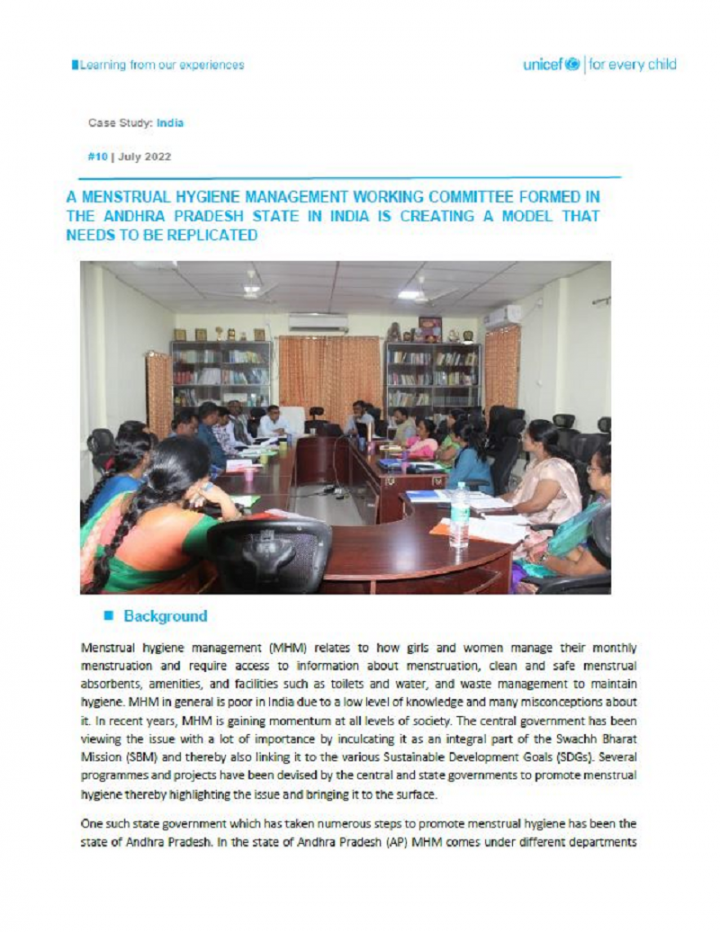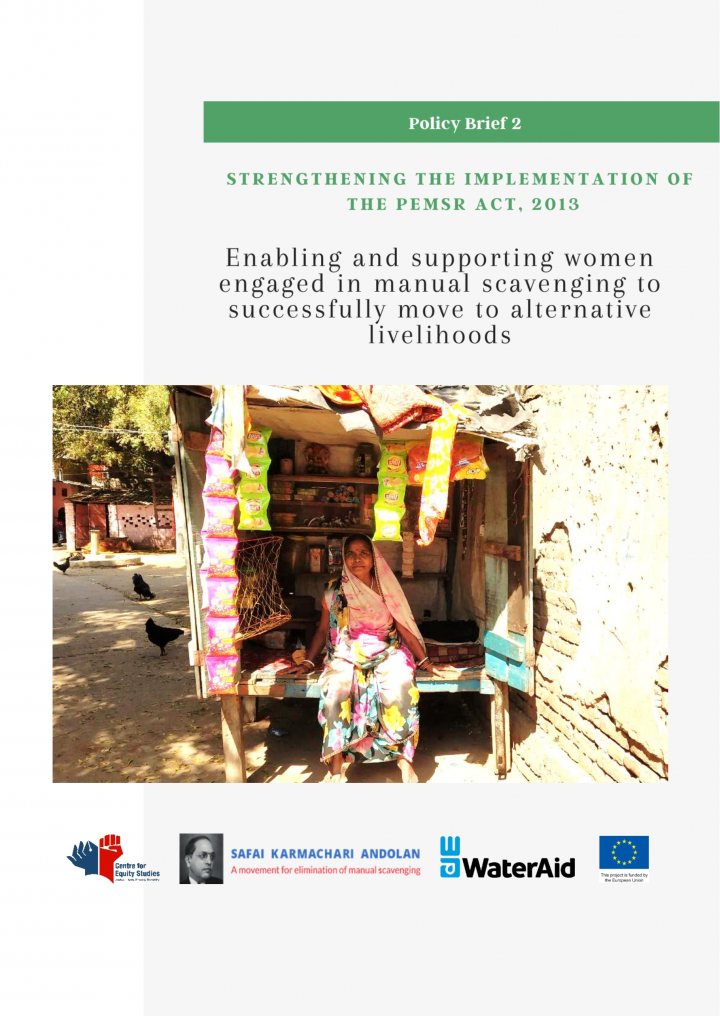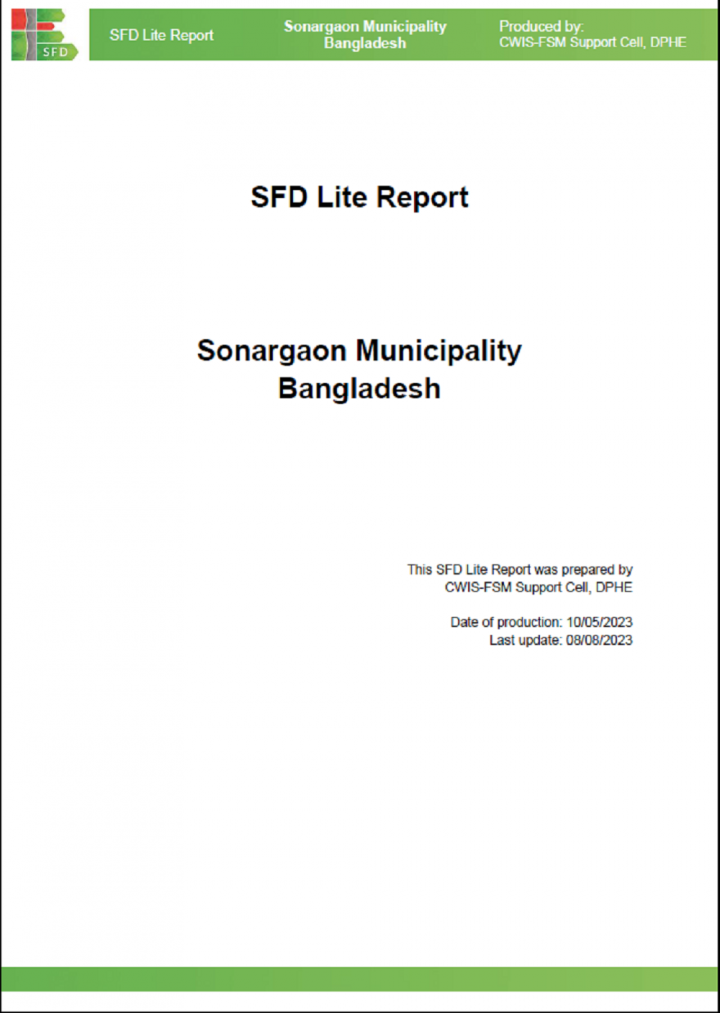Searching for information on Sanitation Workers?
The Sanitation Workers Knowledge + Learning Hub is the best source for all current news, trends, articles and updates on sanitation workers rights around the world.
Menstrual hygiene management (MHM) relates to how girls and women manage their monthly menstruation and require access to information about menstruation, clean and safe menstrual absorbents, amenities, and facilities such as toilets and water, and waste management to maintain hygiene. MHM in general is poor in India due to a low level of knowledge and many misconceptions about it. In recent …
This Methods Note proposes a revised methodology for future ALNAP Lessons Papers. It seeks to improve the rigour of the research methods used to generate them, while maintaining the broad research questions and inclusive approach to grey literature review.
This Methods Note is aimed primarily at the ALNAP Secretariat and authors of future Lessons Papers. It should be used to guide the definition …
Oxfam and Unilever’s Chief Sustainability Office carried out extensive research on handwashing practice in emergency contexts. We found nurture to be one of the most powerful motivators driving handwashing with soap among mothers. Even during a crisis, mothers continue to nurture their children to ensure they go onward in life and succeed in bringing fruition to their efforts and fulfillment …
Three billion people – 40 per cent of the world’s population – do not have a place in their homes to wash their hands with water and soap. Threem quarters of those who lack access to water and soap live in the world’s poorest countries and are amongst the most vulnerable: children and families living in informal settlements, migrant and refugee camps, or in areas of active conflict. This …
The brief is focused on hand hygiene. We have long understood the importance of hand hygiene for the reduction of diarrhoeal diseases, respiratory infections, hospital-acquired infections and during outbreaks like cholera and Ebola. Hand washing with soap or alcohol-based hand rub is an effective COVID-19 prevention measure along with physical distancing and appropriate mask use. Despite the many …
This session examines the multiple ways in which Covid-19 has affected sanitation workers at their workplace and in their personal lives. The speakers highlight how the pandemic disproportionately impacted sanitation workers who were on the 'frontline', yet often had little to no personal safety equipment, work protections or faced intense work pressure. We discuss potential opportunities arising …
In India, gender and caste plays a dominant role in the kinds of jobs that women in the workforce are employed in. It is well established that caste and patriarchy are the main compulsive factors that force people, especially women of the specific scheduled caste communities, into manual scavenging. They are into different forms of manual scavenging, mainly cleaning the insanitary dry latrines …
Abstract:
Studies show positive impacts of social support onchildcare practices, but there is limited research onchild toilet training. Social support with toilet trainingmay be especially important for rural Indian caregiversas this is a new childcare practice for many andmothers face an already demanding workload. The aimof this study was to examine the role of social supportin toilet …
The transition to the Sanitation Economy presents a transformational opportunity to ensure a sustainable future for sanitation systems that can provide alternatives to the cost burdened systems of today, towards cost recovery and full of life-improving innovations, business and commercial investment opportunities - that could turn the outlook for SDG 6 around and ensure the resilience of …
Sonargaon is one of the ancient capitals of Bengal and served as the administrative centre of eastern Bengal. It is located in the Sonargaon Upazila of the Narayanganj District within the Dhaka Division. The geographical coordinates of Sonargaon are 23°38' N and 90°35' E . Its northern and western boundaries are defined by Araihazar and Rupganj upazilas, its southern and eastern boundaries by …
Handwashing with soap effectively prevents diarrhoea, a leading cause of death in infants. Theory-based interventions are expected to promote handwashing more successfully than standard approaches. The present article investigates the underlying change processes of theory-based handwashing interventions. A nonrandomised field study compared a standard approach to two theory-based interventions …
Engaging communities in humanitarian programming is key to ensuring their participation in decision-making that affects them as outlined by commitment 4 of the Core Humanitarian Standards. Based on learning from the West-African Ebola response (2014–2016), Oxfam’s WASH (water, sanitation, and hygiene) team is undertaking a paradigm shift toward greater community engagement (hereafter referred …
The biosand filter is an intermittent-flow adaptation of slow sand filtration technology. Developed over 20 years ago and now with 15+ years’ operating experience in households, it has established a reputation for effectiveness, durability, and sustained use. Research, field evaluations, and understanding of the nature of intermittent filter operation have led to advances in the design of the …
Wayanad's pilot project on faecal sludge management (FSM) has encouraged risk-informed programming, innovation, in the sanitation sector. A unique waste management system has been commissioned in Wayanad that uses vermifiltration (use of worms) to process waste and turn it into compost and useable greywater.
The Uganda Nutrition and Early Childhood Development Project was one of the World Bank's first projects to demonstrate the value-added of strategic communication. The strategic communication component developed for this project included the use of formative research about values and attitudes with respect to child rearing, in order to develop and test effective messages. The communication …
The purpose is to examine a sanitation facility, and
a) Find out if a physically vulnerable person1 is able to use the facility independently.
b) Identify which features make it easy to use, and which features make it difficult to use by
a physically vulnerable person.
c) Find out if there are any safety concerns around using the facility, particularly for
adolescent girls, women and …
At a webinar on 5 May, 2021, World Hand Hygiene Day, IRC, UNICEF, WaterAid India, WHO and the SuSanA India chapter organized a webinar with experts from the field of public health, WASH, disaster management and more. The objective was to reach civil society organizations from across India with a Call to Action. It urged CSOs, local government institutions and other local networks to prioritize …
Since the establishment of the International Scheme to Evaluate Household Water Treatment Technologies (the Scheme) in 2014, WHO has been independently evaluating the performance of household water treatment (HWT) technologies in removing microbial contaminants from drinking-water. The results of the evaluation are intended to guide procuring United Nations (UN) agencies and Member States in HWT …
Several members of the Communicating with Disaster Affected Communities (CDAC) Network have recognised the need to work with rumours in their missions to prevent the loss of lives and alleviate suffering. Notably, Internews with their pioneering inter-agency model, the World Health Organisation and United Nations Office for the Coordination of Humanitarian Affairs have made considerable efforts …
The technologies mentioned in this document have been shortlisted based on topographical considerations, technical feasibility cost effectiveness and scalability. Moreover, these technologies should be easy to operate and require minimal intervention of skilled personnel, which is otherwise a limitation in rural areas.
The Technical Manual is intended to provide the reader with suggestive …
In Bangladesh diarrhoeal disease and respiratory infections contribute significantly to morbidity and mortality. Handwashing with soap reduces the risk of infection; however, handwashing rates in infrastructure-restricted settings remain low. Handwashing stations – a dedicated, convenient location where both soap and water are available for handwashing – are associated with improved …
Unsafe water consumption is the environmental risk factor in sub-Saharan Africa contributing most to premature death. In urban slums and dispersed rural communities, where access to safe water is especially limited, water kiosks are a relevant safe water source. However, irregular use challenges their operational viability and may cause discontinuation. The present study investigated collective …







































